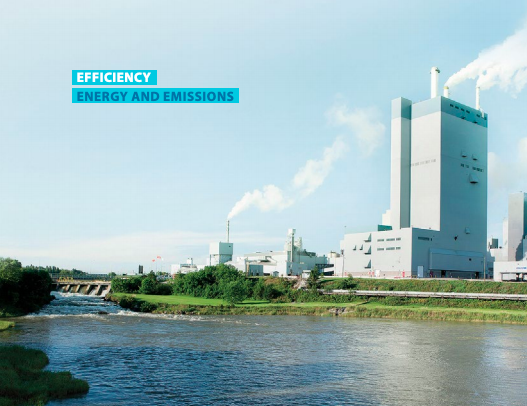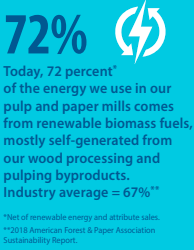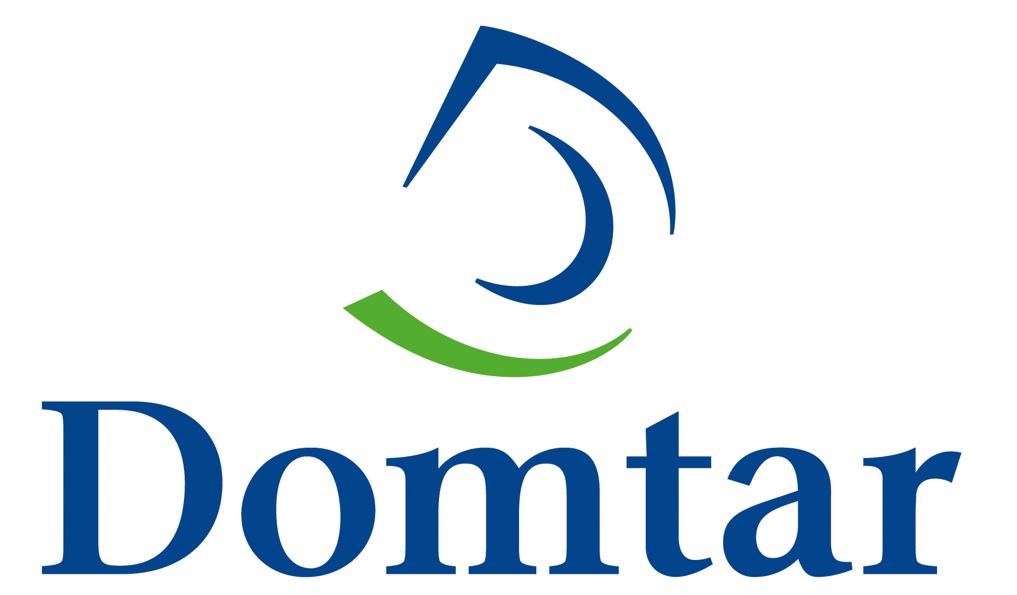Domtar Pushes Towards a Lower-Carbon Economy
Thanks to a long history of effectively managing energy, including efforts to optimize our use of carbon-neutral biomass fuels, Domtar is well positioned to meet expectations for a lower-carbon economy.
We continue to invest in targeted projects to optimize and enhance the reliability of our manufacturing assets, and improve the efficiency of our raw material and energy use. These ongoing investments have incrementally improved our cost, climate and environmental profile, and we expect further progress in the years ahead.
As a result, Domtar enjoys an environmental edge relative to other major pulp and paper producing regions of the world, with direct greenhouse gas emissions about two-thirds lower than the average pulp and paper producer in Asia. Our emissions to air of nitrogen oxides, sulfur dioxide and particulate matter have also significantly improved through these initiatives.
Longer term, Domtar’s pulp mills may serve as biorefineries to produce affordable, sustainable biomaterials and fuels that can potentially replace some fossil-based products, furthering the development of a lower-carbon economy.
Priorities:
- Continuing to improve the reliability of our assets and operations through targeted investments in our facilities and Continous Improvement programs.
- Maximizing the economic value and environmental benefits from our energy generation assets, including through partnerships with local utilities and businesses.
- Preparing for a low-carbon economy by advocating for sustainable policies, reducing our carbon footprint and building resiliency into our operations and supply chains.
Challenges
- Gettin more non-governmental organizations to understand the benefits of using renewable, carbon-neutral biomass fuels from sustainably managed forests in our processes.
- Finding lower-carbon fuel alternatives to natural gas for use in our mills that meet process supply and safety requirements as well as product quality requirements.
- Getting policymakers to recognize and address the unintended consequences of policies that shift manufacturing to regions with higher carbon footprints than ours.
Read the Domtar 2019 Sustainability Report



